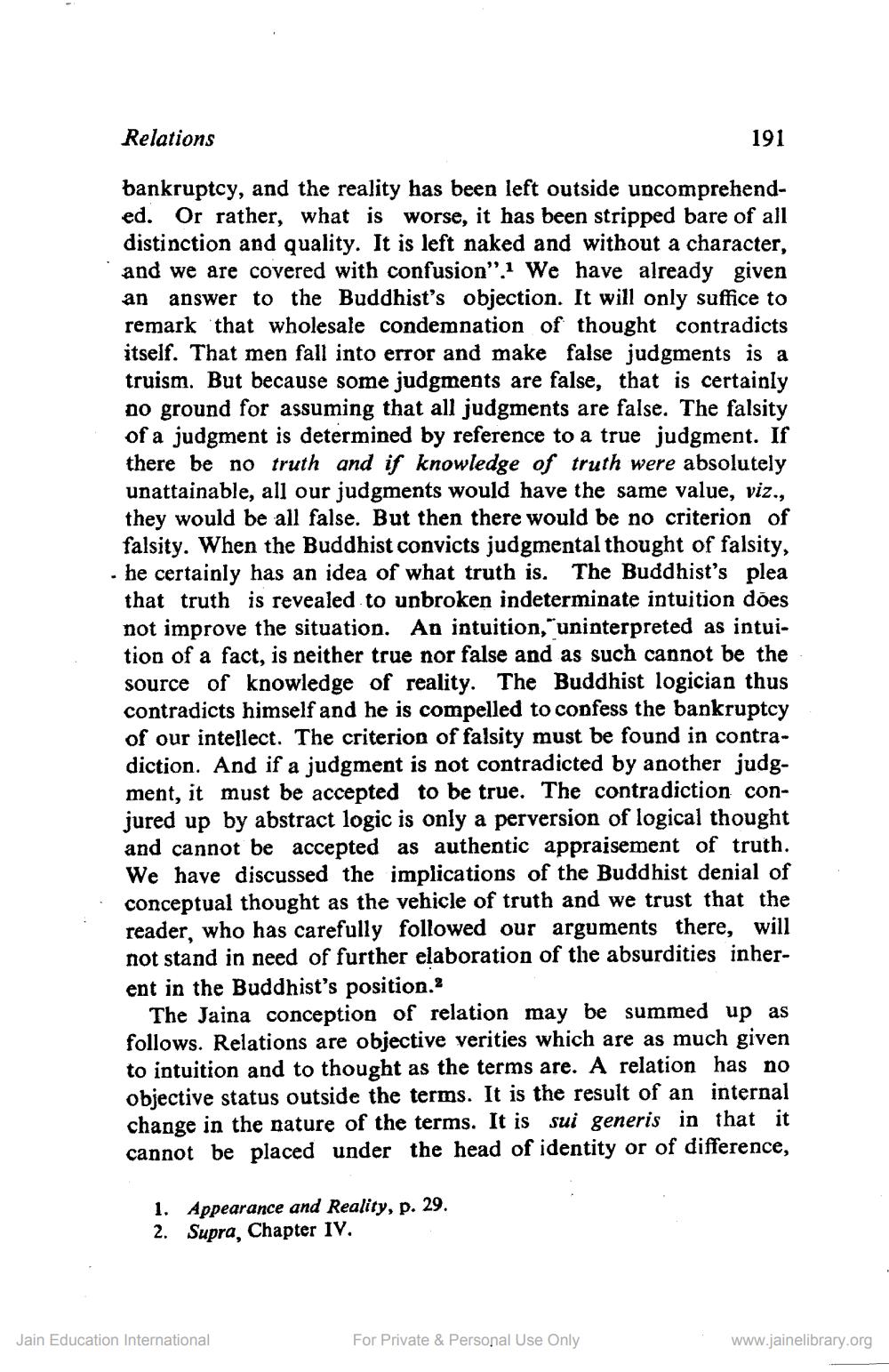________________
Relations
bankruptcy, and the reality has been left outside uncomprehended. Or rather, what is worse, it has been stripped bare of all distinction and quality. It is left naked and without a character, and we are covered with confusion". We have already given an answer to the Buddhist's objection. It will only suffice to remark that wholesale condemnation of thought contradicts itself. That men fall into error and make false judgments is a truism. But because some judgments are false, that is certainly no ground for assuming that all judgments are false. The falsity of a judgment is determined by reference to a true judgment. If there be no truth and if knowledge of truth were absolutely unattainable, all our judgments would have the same value, viz., they would be all false. But then there would be no criterion of falsity. When the Buddhist convicts judgmental thought of falsity, - he certainly has an idea of what truth is. The Buddhist's plea that truth is revealed to unbroken indeterminate intuition does not improve the situation. An intuition, uninterpreted as intuition of a fact, is neither true nor false and as such cannot be the source of knowledge of reality. The Buddhist logician thus contradicts himself and he is compelled to confess the bankruptcy of our intellect. The criterion of falsity must be found in contradiction. And if a judgment is not contradicted by another judgment, it must be accepted to be true. The contradiction conjured up by abstract logic is only a perversion of logical thought and cannot be accepted as authentic appraisement of truth. We have discussed the implications of the Buddhist denial of conceptual thought as the vehicle of truth and we trust that the reader, who has carefully followed our arguments there, will not stand in need of further elaboration of the absurdities inherent in the Buddhist's position."
The Jaina conception of relation may be summed up as follows. Relations are objective verities which are as much given to intuition and to thought as the terms are. A relation has no objective status outside the terms. It is the result of an internal change in the nature of the terms. It is sui generis in that it cannot be placed under the head of identity or of difference,
1. Appearance and Reality, p. 29.
2. Supra, Chapter IV.
Jain Education International
191
For Private & Personal Use Only
www.jainelibrary.org




